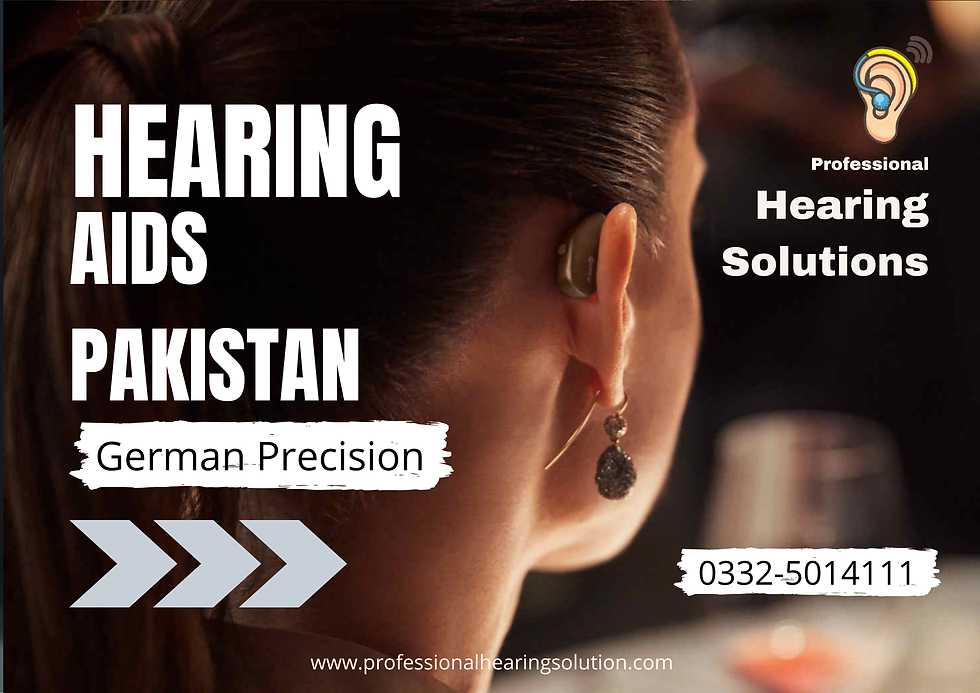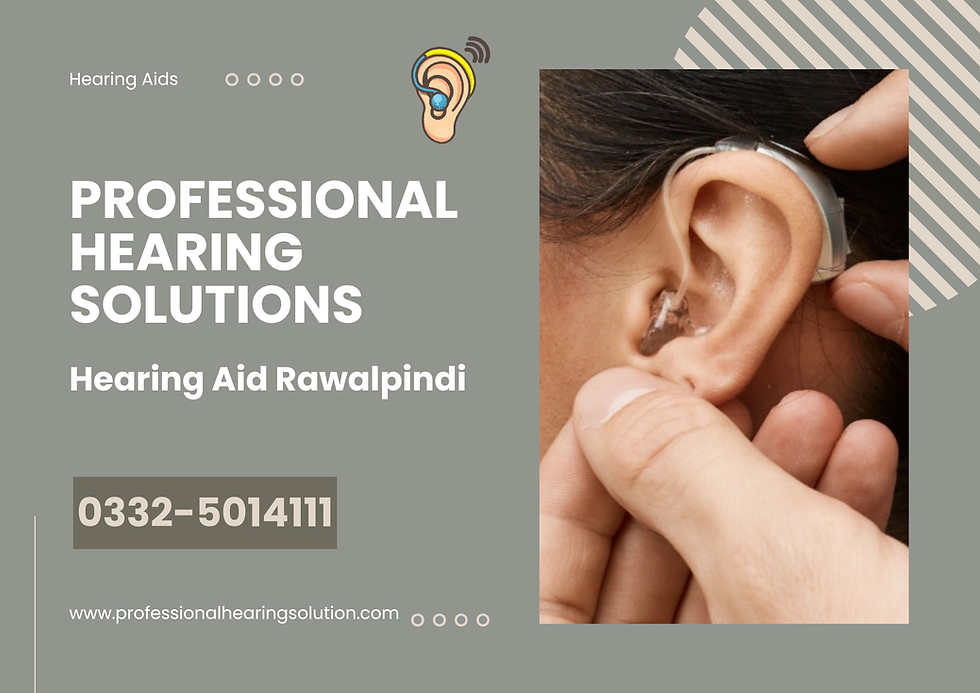What Is the Importance of Hearing in Speech and Language Development?
- Hearing Solutions

- Oct 13, 2020
- 2 min read
Updated: Jul 24, 2022

The capacity to hear effectively influences more than just our ability to speak; it also influences a child's vocabulary and sentence structure development, academic accomplishment, social interaction, and job choice.
According to the American Speech-Language-Hearing Association, hearing loss can affect children in four ways:
· It causes speech and language deficits.
· Lower academic attainment is the outcome of a linguistic disadvantage.
· Communication challenges lead to social isolation and a low self-esteem, which may influence career choices.
Hearing-impaired youngsters struggle to grasp abstract terms like "before" and "after," as well as words with numerous meanings. They frequently have difficulty hearing specific sounds, such as "s," "sh," "f," "t," "k," and "ed," which impacts the sentences they create and the words in their vocabulary.
While the difference between children with normal hearing and those with hearing loss grows with age, children with hearing loss can catch up with proper diagnosis and treatment.
When Should Children With Hearing Loss Receive Treatment?
The Joint Committee on Infant Hearing (2007) advised that all newborns be screened for hearing by one month of age.
Those who fail the newborn hearing test should be screened again by three months, and those with verified persistent hearing loss should be treated by six months.
The Centers for Disease Control and Prevention (CDC) recommends that newborns born in a hospital be checked before leaving, and that those born elsewhere be transported to a hospital or clinic within a few days of delivery.

What Should You Do If You Suspect Your Child Is Deaf?
The first three years of life are important for developing speech and language abilities, according to the National Institute on Deafness and Other Communication Disorders (NIDCD). This is when the brain is developing and maturing, making it an ideal time for language acquisition. Experts believe that newborns should be exposed to a variety of sounds and language.
Children should react to loud sounds and be comforted by a familiar voice throughout the first three months of life. Infants aged three to six months should use their eyes to follow sound, notice loud toys, react to music, and laugh, babble, or produce gurgling sounds.
Children as young as four weeks old can be fit with hearing aids and hearing assistive technology systems.
If you find your kid is not reacting to sound, get additional evaluation from an audiologist or a speech-language pathologist.
Don't Put Off Treatment!
The most essential thing is to get therapy as soon as possible. According to research, early intervention not only improves speech and language development, but also social skills and academic achievement.
Hearing aids and hearing assistive technology devices can be fitted to children as early as four weeks old. The most common form of hearing aid for newborns and early children is a behind-the-ear (BTE) ear mold because it can accommodate a wide range of hearing deficits, is simple to clean and adjust, and can be detached and recreated as your kid develops.








